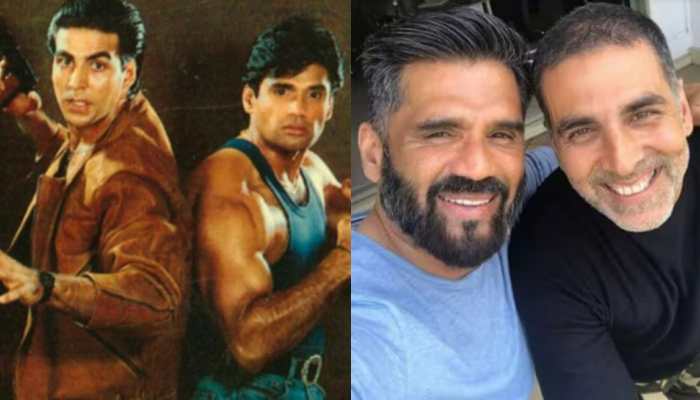Minority politics: All promise, no delivery
Minority politics gets a facelift every time elections are due.
Trending Photos
)
 Pankaj Sharma and Rashi Aditi Ghosh/ ZRG
Minority politics gets a facelift every time elections are due. And when Uttar Pradesh is going to polls, temperature rises beating even deep winter chill. But this does not change the course of the destiny for the minority community.
The reality on the ground, notwithstanding claims and counter-claims by politicians of all hues, is that there is a yawning gap between the promise and delivery when it comes to measures announced for the minority community. Unfortunately, there are no exceptions, not even the Prime Minister’s 15-Point Programme for Minorities (PMPM). The PM’s initiative brought about a targeted minority focus in various ongoing government welfare schemes.
A review of the programme, which was initiated in 2006, has revealed that there is a wide gap between targets and achievements. The five year analysis of few flagship central schemes (2006-2011) mandated for minority communities shows deficit in overall performance. The government’s flagship primary education programme, ‘Sarva Shiksha Abhiyan’ (SSA), that started almost a decade ago, has been found in the deficit on several counts, especially in poll bound states.
The number of primary schools constructed in districts with substantial minority population fell short of promise. The minority districts of Manipur showed a gap of 45.9 per cent while Uttarakhand and Uttar Pradesh followed with a 22.9 per cent 9 per cent gap respectively.
Again, when it comes to the number of upper primary schools constructed in minority concentrated districts, Manipur, Uttarakhand and Uttar Pradesh score poorly. Manipur witnessed a 100 per cent gap while it was 30 per cent and 10 per cent gap respectively for Uttarakhand and UP.
The number of teachers sanctioned for districts with substantial minority population is also on the lower side in states ready for elections. While Goa and Manipur show 100 per cent below performance targets, Uttar Pradesh and Uttarakhand show a deficit of 50 per cent and 40 per cent respectively.
Wajahat Habibullah, chairman, National Commission for Minorities (NCM), says the situation on the ground “tells a different story” while the government report card generally “presents a rosy picture.” ZRG had spoken to him earlier on minority welfare schemes. The “performance gap” has to do with the overall administrative inefficiency but even then “politicians would not desist” from making pitches for minority community votes, says Professor S Jodhka, at Sociology department of Jawaharlal Nehru University.
But not all is negative when it comes to implementation of schemes targeted at minorities. Professor S Sajid, of Social Work department at Jamia Millia Islamia avers, “My experience of reservations for Muslims reveals that it has had a positive impact as they have to compete among themselves for a number of jobs and not with those who are better endowed.” That is why he favours reservation as “important to open the windows of opportunities to those who due to historical, economic and social disadvantage have limited access to education and employment.”
Moving away from education to employment, the ‘Swarna Jayanti Shahari Rozgar Yojana’ (SJSRY), which aims to provide gainful employment to urban poor, also fared poorly when it comes to minorities’ lot. While Goa and Punjab topped the chart with 99.38 per cent and 98.96 percent gap, Uttar Pradesh and Uttarakhand followed with 97.5 per cent and 47.44 per cent respectively.
‘Indira Awas Yojana’, which aims to provide housing for the rural poor, ended up not spending the allocated budgets for minorities under the PM scheme. Manipur and Punjab have spent less with 94.7 per cent 85.44 per cent gap respectively. Goa, Uttarakhand and Uttar Pradesh too fared poorly with 81.6 per cent, 73.43 per cent and 43.89 per cent gap respectively in the prescribed spending target.
“Minority politics plays a pivotal role in elections. That is welcome so long as what is promised is delivered, “asserts Prof. Jodhka.
Pankaj Sharma and Rashi Aditi Ghosh/ ZRG
Minority politics gets a facelift every time elections are due. And when Uttar Pradesh is going to polls, temperature rises beating even deep winter chill. But this does not change the course of the destiny for the minority community.
The reality on the ground, notwithstanding claims and counter-claims by politicians of all hues, is that there is a yawning gap between the promise and delivery when it comes to measures announced for the minority community. Unfortunately, there are no exceptions, not even the Prime Minister’s 15-Point Programme for Minorities (PMPM). The PM’s initiative brought about a targeted minority focus in various ongoing government welfare schemes.
A review of the programme, which was initiated in 2006, has revealed that there is a wide gap between targets and achievements. The five year analysis of few flagship central schemes (2006-2011) mandated for minority communities shows deficit in overall performance. The government’s flagship primary education programme, ‘Sarva Shiksha Abhiyan’ (SSA), that started almost a decade ago, has been found in the deficit on several counts, especially in poll bound states.
The number of primary schools constructed in districts with substantial minority population fell short of promise. The minority districts of Manipur showed a gap of 45.9 per cent while Uttarakhand and Uttar Pradesh followed with a 22.9 per cent 9 per cent gap respectively.
Again, when it comes to the number of upper primary schools constructed in minority concentrated districts, Manipur, Uttarakhand and Uttar Pradesh score poorly. Manipur witnessed a 100 per cent gap while it was 30 per cent and 10 per cent gap respectively for Uttarakhand and UP.
The number of teachers sanctioned for districts with substantial minority population is also on the lower side in states ready for elections. While Goa and Manipur show 100 per cent below performance targets, Uttar Pradesh and Uttarakhand show a deficit of 50 per cent and 40 per cent respectively.
Wajahat Habibullah, chairman, National Commission for Minorities (NCM), says the situation on the ground “tells a different story” while the government report card generally “presents a rosy picture.” ZRG had spoken to him earlier on minority welfare schemes. The “performance gap” has to do with the overall administrative inefficiency but even then “politicians would not desist” from making pitches for minority community votes, says Professor S Jodhka, at Sociology department of Jawaharlal Nehru University.
But not all is negative when it comes to implementation of schemes targeted at minorities. Professor S Sajid, of Social Work department at Jamia Millia Islamia avers, “My experience of reservations for Muslims reveals that it has had a positive impact as they have to compete among themselves for a number of jobs and not with those who are better endowed.” That is why he favours reservation as “important to open the windows of opportunities to those who due to historical, economic and social disadvantage have limited access to education and employment.”
Moving away from education to employment, the ‘Swarna Jayanti Shahari Rozgar Yojana’ (SJSRY), which aims to provide gainful employment to urban poor, also fared poorly when it comes to minorities’ lot. While Goa and Punjab topped the chart with 99.38 per cent and 98.96 percent gap, Uttar Pradesh and Uttarakhand followed with 97.5 per cent and 47.44 per cent respectively.
‘Indira Awas Yojana’, which aims to provide housing for the rural poor, ended up not spending the allocated budgets for minorities under the PM scheme. Manipur and Punjab have spent less with 94.7 per cent 85.44 per cent gap respectively. Goa, Uttarakhand and Uttar Pradesh too fared poorly with 81.6 per cent, 73.43 per cent and 43.89 per cent gap respectively in the prescribed spending target.
“Minority politics plays a pivotal role in elections. That is welcome so long as what is promised is delivered, “asserts Prof. Jodhka.
Live Tv







)
)
)
)
)
)
)
)
)
)
